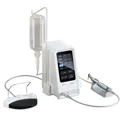In an interconnected world where cross-border interactions are commonplace, the need for authenticating documents for international use is paramount. Whether it's for business transactions, academic pursuits, or legal matters, ensuring the validity of documents is essential. For individuals and entities looking to authenticate their US documents for use in Thailand, understanding the Thailand legalization process at the Thai Embassy in Washington, DC, is crucial. This blog post aims to provide insight into the Thailand legalization process, shedding light on its significance and intricacies.
What is Thailand Legalization?
Thailand legalization is the process of authenticating US documents at the Thai Embassy or Consulate in Washington, DC, to make them legally valid for use in Thailand. These documents may include but are not limited to birth certificates, marriage certificates, academic transcripts, power of attorney, and various legal documents required for business transactions or personal matters in Thailand.
How Does the Thailand Legalization Process Work at the Thai Embassy in Washington, DC?
The process of legalizing US documents for use in Thailand at the Thai Embassy in Washington, DC, typically involves the following steps:
- Document Verification: Ensure that the document requiring legalization is an original or a certified copy issued by the appropriate authority in the United States.
- Notarization (if required): Certain documents may need to be notarized by a US notary public before proceeding with the legalization process.
- Certification by the Secretary of State: Depending on the document type and state regulations, some documents may require certification by the Secretary of State in the state where the document was issued.
- Legalization by the Thai Embassy: The document, along with the completed legalization request form and applicable fees, is submitted to the Royal Thai Embassy or Consulate in Washington, DC, for authentication.
- Endorsement by the Thai Ministry of Foreign Affairs: After authentication by the Thai Embassy, the document is forwarded to the Ministry of Foreign Affairs in Thailand for further verification and endorsement.
- Final Verification: Upon completion of the legalization process, the document is considered legally valid for use in Thailand and can be utilized for various purposes, including business transactions, employment, education, or legal matters.
Importance of Thailand Legalization Process
The Thailand legalization process at the Thai Embassy in Washington, DC, plays a crucial role in facilitating international transactions and legal proceedings between the United States and Thailand. By obtaining the necessary endorsements from the Thai Embassy and the Ministry of Foreign Affairs in Thailand, individuals and entities can navigate legal and administrative processes in Thailand with confidence and ease.
Without proper legalization, US documents may not be recognized or accepted in Thailand, leading to delays, complications, or even legal implications. Therefore, utilizing the Thailand legalization process at the Thai Embassy in Washington, DC, is essential for individuals and entities conducting business, pursuing education, or engaging in legal matters in Thailand.
In conclusion, the Thailand legalization process at the Thai Embassy in Washington, DC, is indispensable for individuals and entities seeking to authenticate their US documents for use in Thailand. By understanding the process and adhering to the prescribed procedures, individuals and entities can ensure the validity and acceptance of their documents in Thailand, contributing to seamless international transactions and endeavors.
In a globalized world where cross-border interactions are commonplace, the importance of the Thailand legalization process at the Thai Embassy in Washington, DC, cannot be overstated. By availing of these services, individuals and entities can navigate the complexities of document legalization for international use with confidence and efficiency, facilitating smooth transactions and interactions in Thailand.














